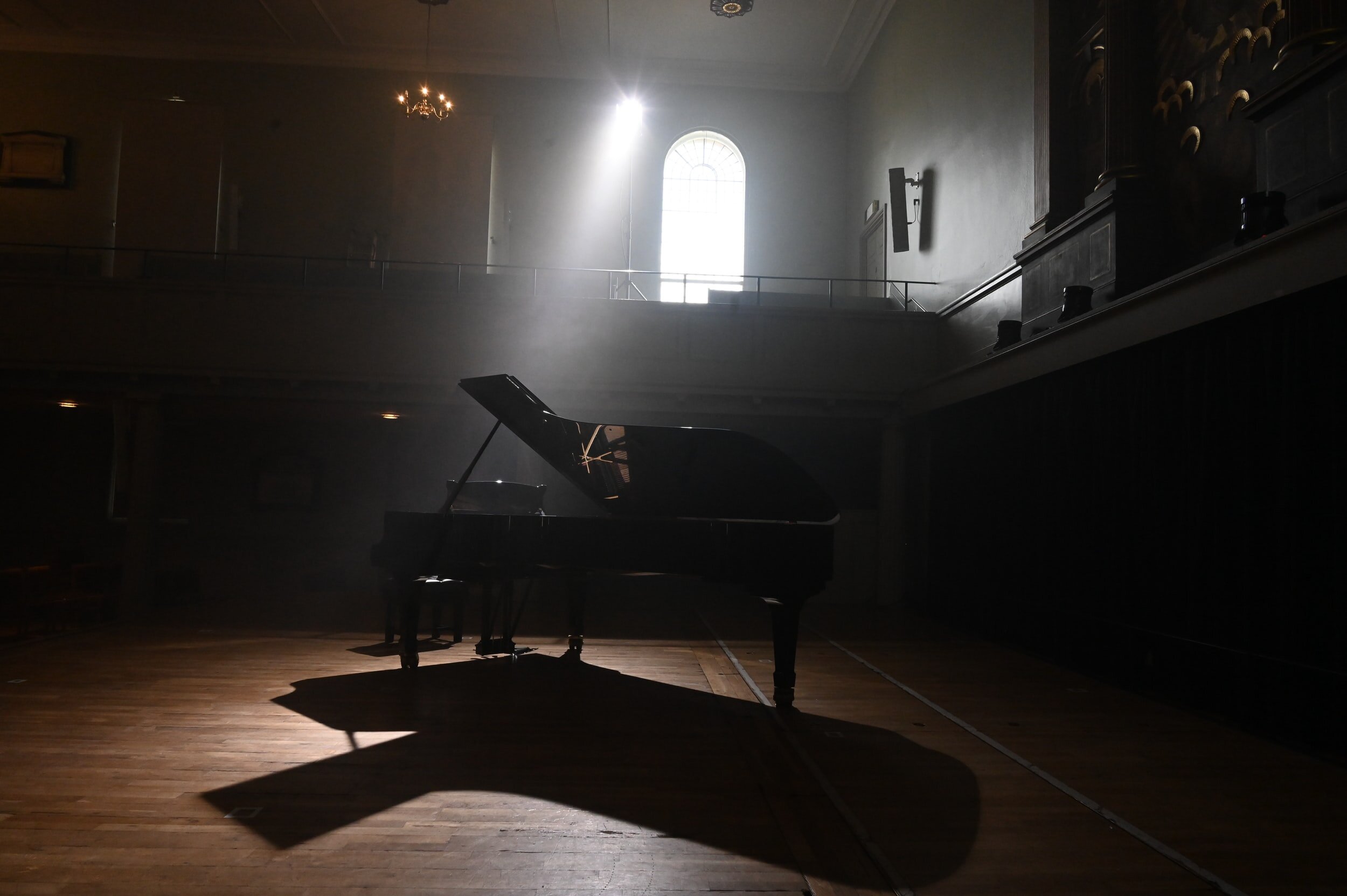
“Music is uniquely positioned to introduce students to the glory of God.”
MY TEACHING PHILOSOPHY
Music as a Calling
I want to help students understand that music is not just for their enjoyment but is also a calling from God. God commands the performer to give life to His notes, preserve music through generations and share the power and beauty of His music with the world.
If we believe God gave us this calling, then we must take this calling seriously. For instrumental teachers, this means providing each student with the most well-rounded musical education. Technique, hand, arm and body posture, fingering, phrasing, theory, critical listening and critical thinking, performance study, and the art of smart practice – these are the building blocks of musicianship. Through these tools students can achieve their fullest potential as pianists, musicians and young artists.
Teachers Must be Gentle But Firm
A teacher does not influence through brute intellectual or emotional force. A teacher achieves influence through encouragement, the development of critical thinking, and through empathy. A teacher should understand from where their students came, where they are, and where they wish to go. This is all the more important for instrumental instructors who spend significant time in a one-on-one setting. (It is not easy to obtain or maintain a career in the musical profession. It is in some ways even harder to be a Christian musician - I certainly struggled during my own years as a student with competitiveness and insecurities. I empathize greatly with my own students’ individual struggles and difficulties.)
God’s Love Compels Us to Love Our Community
I am one of the founding members and the concert program coordinator of the Confido Music Society, a non-profit organization that organizes benefit concerts to help children with disabilities, foster children, refugee children and disadvantaged children throughout the world. I hope to encourage students gain performance opportunities not only for their musical growth but also to contribute their musical gifts to society and the community through recital performances.
Gaining Maturity and Discipline Through Musical Education
My mission is to train young students to become mature and disciplined through musical education. I want my students to be able to use their God-given musical gifts and talents effectively to praise His creation, music, as beautifully as they can. Competitions, auditions and various recitals, performance opportunities, learning the most difficult repertoire, getting into top music schools - these things will be tools to achieve the higher calling, not the other way around.
MY TEACHING STYLE
Ever since I became a Christian as a 20 year-old college student, faith and music have been inseparable. Music is a gift from God – a gift through which I have found lifelong purpose and for which I am indescribably thankful to Him.
We feel God’s strong presence through music’s beauty. It is no coincidence that we praise the Lord through song and music; performers and listeners alike are put into a worshipful frame of mind through music’s emotional and intellectual power.
As an instructor, my primary goal is to help and equip students with tools they need to praise God as beautifully as they can. God created each student differently, with different strengths and weaknesses and preferences, for a reason. Therefore, my teaching is highly individualized to the student: I try to understand each student’s motivation for studying the piano as well as their musical ability, and then mold that student’s musical studies, assign works, and dictate learning speed and expectations accordingly.
I am a firm believer in a musical education that engages and motivates students to think critically and cognitively, to be “thinkers” with independent voices, and eventually to develop maturity not only as pianist and musician but as a whole person. Once a student understands “why,” we then explore “what” musical choices to make, and finally “how” we are going to achieve that goal.
Consistent Practice
Piano playing is both physical and mental.
It is essential that we train consistently, the same way that athletes train. Piano practice does not allow for procrastination - it requires steady, bit-by-bit progress.
Critical Thinking
Music is highly subjective, and it is important for today's generation to be able to articulate their ideas clearly, coherently, and with confidence.
Great performances do not just come from great technique. The study of music is most rewarding and most interesting when students understand not just "what" to do but "why." Understanding the theory behind the work, having knowledge of the context and history of the music, reading great books, and more are all equally important in becoming a well-rounded, mature, and healthy musician and person.
Efficient Practice
Inefficient practice habits formed as young students often stick with them into adulthood.
Being able to practice mindfully is a skill that needs to be taught, trained, and cultivated. I have very specific views about practice, and a key part of my training is to guide students to be more productive and purposeful in their own practice and ultimately become their own teachers.
Check-Ins and Goals Setting
It is crucial for the teacher to be aware of her students’ mental state and to encourage and help the student to cultivate a purposeful and intentional work ethic.
I’ve seen many unhappy talented young pianists become depressed or burnt out and not use their full potential. This is why I offer a once-a-month consultation with every student regardless of their level and age, so that we can discuss and set up practical goals and evaluate their work and progress.


